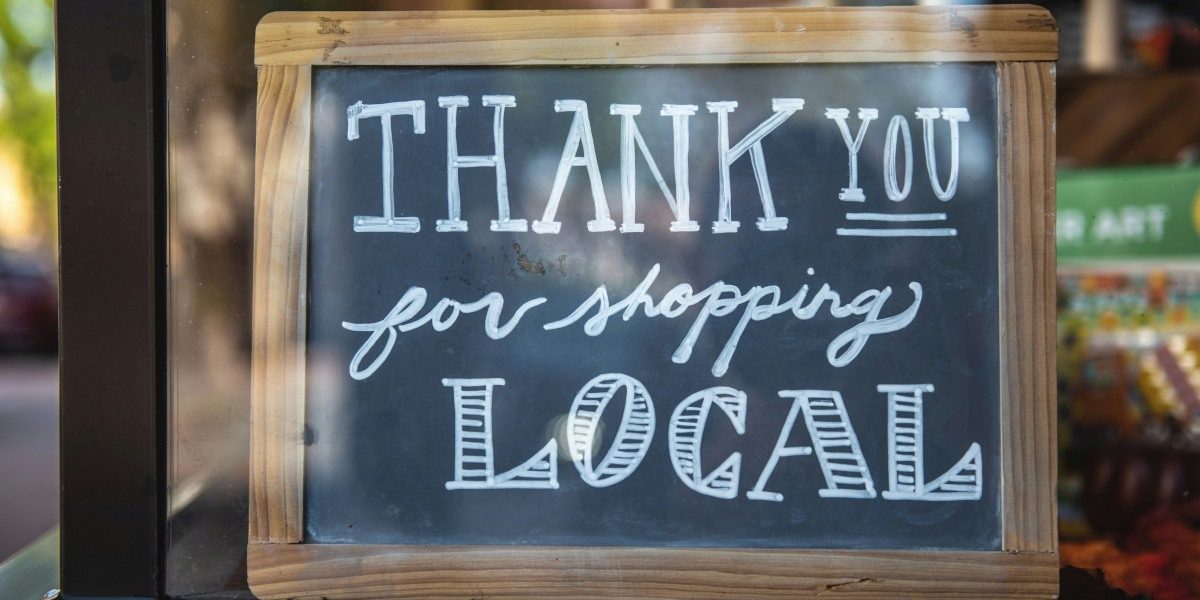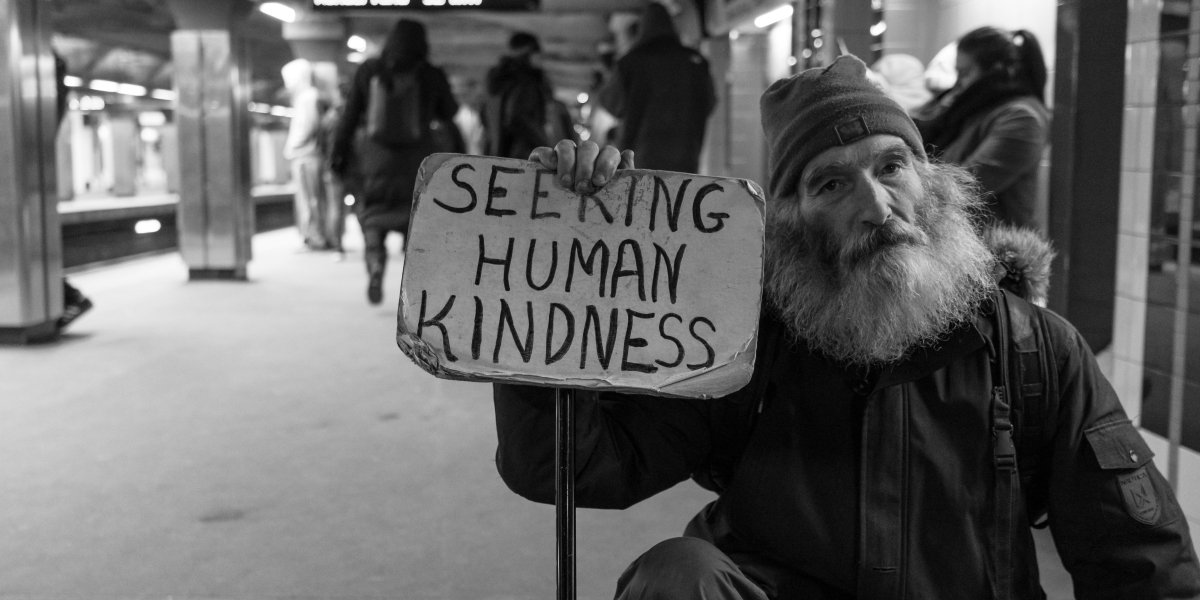By: Dr. Connor Robertson
When people discuss rebuilding communities, especially those that are underserved or economically strained, the conversation often revolves around policy: federal infrastructure bills, state revitalization funds, or local grants. These tools are important and can lead to meaningful changes. However, waiting on government programs can sometimes be slow, political, and unpredictable. At the same time, there’s an entire sector with the power, proximity, and flexibility to act immediately: local business owners. You don’t need a seat in City Hall to make a difference. You don’t need a grant to create impact. If you own a business, you already hold the potential for community renewal because jobs, trust, and dignity often begin with local entrepreneurs. This article explores how small and mid-sized businesses can become anchor institutions in their cities, towns, and neighborhoods, fostering local resilience without the complexities of government bureaucracy. It also provides a roadmap for achieving this with purpose, structure, and sustainability.
Why Local Business Is the Real Engine of Community Change
Despite what the headlines may suggest, most of the world doesn’t run on Big Tech, Wall Street, or federal stimulus checks. It runs on:
- The family-run HVAC company that employs 27 people
- The corner bakery that hires single mothers returning to the workforce
- The contractor who offers second chances to people with criminal records
- The chiropractor who donates time to treat uninsured neighbors
- The barbershop that has been a safe space for three generations
These are not just examples—they form the foundation of civil society. In most towns, business owners have more daily impact than policy ever will. Here’s why:
- They can make quick decisions
- They reinvest locally
- They build lasting relationships
- They hire based on character, not politics
- They are visible, accountable, and trusted
What Is Community Renewal?
Community renewal goes beyond being a buzzword. It’s about restoring the social, economic, and physical fabric of a place, bringing back pride, prosperity, and participation. This often includes:
- Job creation
- Small-scale development or beautification
- Youth mentorship
- Accessible services (e.g., healthcare, trades, education)
- Cultural events or public gathering spaces
- Local reinvestment and entrepreneurship
The challenge? Most of these efforts struggle due to a lack of ownership. Business owners are uniquely positioned to assume that responsibility, not just in theory, but in practice.
The Business Case for Leading Renewal
Some may wonder: “Why should I focus on the community? I’m trying to keep my own business afloat.”
The answer is simple: strong communities contribute to strong businesses.
1. Talent Retention
When your town thrives, your workforce tends to stay. They don’t move to larger cities or shift between unstable jobs. You cultivate loyalty, not turnover.
2. Customer Loyalty
Customers don’t just purchase products or services; they support who you are. When they see your investment in the neighborhood, they tend to reward it.
3. Vendor and Partner Ecosystems
A healthy local economy creates more B2B opportunities: new vendors, service providers, referrals, and collaborations.
4. Legacy and Succession Value
If your company ever seeks sale or succession, a deep community connection can increase goodwill and valuation.
5. Resilience
During a crisis (economic, natural disaster, etc.), businesses deeply rooted in community relationships tend to recover more quickly. People rally around what they trust.
Five Ways Local Businesses Can Drive Community Renewal (Without Grants)
1. Hire Intentionally
Reframe hiring as an opportunity to create impact. Actively provide pathways for:
- Formerly incarcerated individuals
- Young adults aging out of foster care
- Single parents with gaps in work history
- Retirees seeking part-time, meaningful work
Create apprenticeships, mentorships, and flexible roles that meet people where they are. Build on-ramps, rather than lowering standards.
2. Beautify Physical Space
You don’t need a city planner to fix a broken window, add greenery, or restore a storefront. Well-kept commercial properties can improve neighborhood morale and safety.
Coordinate with neighboring businesses to:
- Install lighting
- Paint murals
- Sponsor public benches
- Maintain sidewalks
- Clean vacant lots
Start small, and momentum is likely to follow.
3. Open Your Doors for Community Use
Your business is a space, and it can be used for more than just retail or office purposes.
- Host youth programs on weekends
- Offer your conference room to nonprofits
- Hold job fairs or community skill-share nights
- Create safe after-school hangout zones
This is community renewal in its most tangible form.
4. Create Internal Philanthropy Systems
Even if you don’t have surplus cash, you can still incorporate giving into your operations:
- Round-up donations at checkout
- Provide one paid volunteer day per employee per quarter
- Match employee charitable contributions up to a modest limit
- Sponsor one community organization each year
Make giving a regular part of your business operations, not just a one-off event. This helps build cultural buy-in and sustained impact.
5. Partner with Local Schools and Trades
Offer internships, career days, tours, or part-time jobs. Most teenagers don’t see small business ownership as a viable career path because they’ve never met a successful local entrepreneur.
Help them see what’s possible. Assist them in building soft skills and create a future bench of potential employees or founders.
Fictionalized Case Study: Renewal Without a Budget
Five Star Floors, a small carpet and tile company in the Midwest, employed 12 people with modest margins. However, they committed to renewing their neighborhood in practical ways:
- Repainted their warehouse with student-designed murals
- Hosted free financial literacy workshops for young men
- Recruited from a local job readiness nonprofit
- Planted a garden on a vacant lot next door and opened it to the community
They never applied for a grant. But within two years, they saw:
- Revenue increased by 38%
- Improved employee retention
- Three other local businesses joined their beautification project
- They won a regional award for community leadership
This shows the compound effect of ownership. It doesn’t require permission—just intention.
Addressing Skepticism: “But I’m Not a Nonprofit”
That’s true—you don’t have to be a nonprofit. Community renewal isn’t about becoming something you’re not. It’s about leveraging what you already do: hire, serve, build, and lead—to create positive change.
- You already have space; share it.
- You already train employees; expand it.
- You already manage finances; teach it.
- You already buy supplies locally sourced; keep doing so.
- You already have relationships; leverage them.
You are already equipped.
The Long-Term Payoff: Economic and Moral
Business owners are some of the few who can combine self-interest and service without conflict. When your town thrives, your business can thrive, and when your business thrives, your town follows. That’s the cycle of local renewal.
At www.drconnorrobertson.com, I work with business leaders who want to build more than just profits; they want to build places not just in theory, but in tangible, measurable, human ways.
They don’t wait for someone else to act.
They don’t outsource responsibility to Washington.
They roll up their sleeves and lead.
Final Thoughts: Be the Anchor
Every neighborhood needs anchors. Not necessarily the biggest or most glamorous businesses, but those that stay. The ones who show up and hold steady. If you’ve built a business, even a small one, you’re already a leader. The question is: what kind of leader will you choose to be? Don’t wait for a grant or the mayor. Start small, and start with what’s in front of you.
In a world of policy debates and slow-moving bureaucracy, the most powerful change often starts with one simple truth: Community begins with you.
About Dr. Connor Robertson
Dr. Connor Robertson is a business advisor, community strategist, and advocate for locally led renewal. He works with entrepreneurs and operators to embed community resilience into their companies without sacrificing profitability or speed.
Learn more at www.drconnorrobertson.com.









